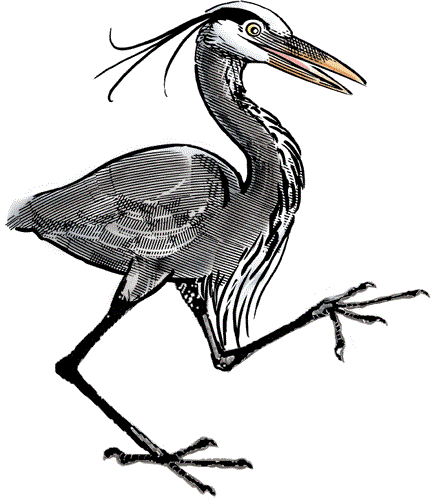 Wisconsin Lakes Partnership 2012 Convention Archive
Wisconsin Lakes Partnership 2012 Convention Archive
Wednesday
Concurrent Sessions 4
April 11, 2012 :: 4:00-5:00 pm
All Things Invasive
Wisconsin's AIS Partnership: Monitoring to Detect New Aquatic Invasive Species and Track the Spread
The DNR, regional and county partners and Citizen Lake Monitoring Network (CLMN) volunteers stepped up our collective aquatic invasive species (AIS) monitoring efforts in Wisconsin due in large part to a Great Lakes Restoration Initiative grant to increase efforts in the Great Lakes basin. It is important that we have citizen volunteers watching their lakes year after year for the introduction of new species. It is also crucial to our AIS partnership planning to monitor with statewide coverage so that we can assess the spread of AIS across our landscape over time. We will report on the number of lakes monitored by CLMN volunteers and what they have found as well as the statewide AIS baseline monitoring effort begun by DNR and partners.
Presenter: Scott Van Egeren, Water Resources Management Specialist, WDNR
Native Plants & Animals
Northern Highland Fishery Research Area: The Past, Present, & Future of Wisconsin's Experimental Fisheries Lakes
Wednesday 4:00-5:00 pm
The Northern Highland Fishery Research Area has been experimenting on lakes for many years in order to provide the best and current information for concerned citizens. This presentation will provide the creel census that has been conducted since 1946, fish population responses to the various management strategies, new regulations for walleye on Escanaba Lake and smallmouth bass on Pallette Lake as well as the exploitation of walleye and smallmouth bass on Big Crooked and Sherman Lake, and the population responses. Learn about how these studies affect your area and what future studies will bring.
Presenter: Greg Sass, WDNR Research Scientist
Presentation:
The Northern Highland Gisheries Reserarch Area: the Past, Present, and Future of Wisconsin's Experimental Fishers Research Lakes
AIS Research
Eurasian Watermilfoil Research
Wednesday 4:00-5:00 pm
For the past three years, the U.S. Army Corps of Engineers and Wisconsin Department of Natural Resources have conducted residual monitoring on herbicide applications for a diverse subset of lakes and flowages throughout Wisconsin. The objective was to provide data regarding actual herbicide concentration and exposure times under varying operational conditions and develop recommendations for improving control of invasive aquatic plants and reducing damage to native plant populations. This presentation will highlight several case studies with different management strategies, from small, spot-treatments to larger whole-lake applications. Preliminary findings regarding herbicide dissipation and degradation will be presented, and the importance of residual monitoring both to understand treatment efficacy as well as ecological risks will be discussed. It is important to note that large-scale herbicide treatments in Wisconsin are experimental, and while multi-year Eurasian watermilfoil control may be possible, significant short term (greater than 3 years) impacts to native plants and longer than expected herbicide residuals demonstrate both the challenges and opportunities facing aquatic plant managers. Long term impacts to aquatic plant populations (both invasive and native species) continue to be evaluated.
Presenters:
- Michelle Nault, Research Scientist, WDNR
- John Skogerboe, U.S. Army Corps Engineer and Development Center
Advocating for Lakes
Metallic and Iron Mining
Wednesday 4:00-5:00 pm
Tom will give a brief overview of the metallic and iron mining technologies used in our region, current mining regulations and proposed changes, and discuss the environmental, political, socio-economic, and cultural issues surrounding mining in our state. Tom has always been interested in complex resource policy issues and the way such issues affect the general public. He’s worked extensively on metallic mining— its regulation at the state and local levels of government, and assessing the impact of metallic mineral exploration and development on Wisconsin citizens. Such complex resource policy issues invariably are controversial and can be divisive. Tom is engaged in Extension’s role as a source of objective information as a means to empower citizens, government groups, and business interests in resolving conflicts related to these kinds of issues.
Presenter: Thomas J. Evans, Wisconsin Geological & Natural History Survey, UW-Madison Dept. of Environmental Sciences, & UW-Extension
Presentation:
Regulating Metal Mining in Wisconsin: Perspectie on a Complex Resource Policy Issue.
County Land & Water Resources
Adams County Shoreland Protection Ordinance - Balancing Landowner Needs with Water Quality Protection
Wednesday 4:00-5:00 pm
Adams County Shoreland Protection Ordinance was recently revised to better protect and improve water quality. The speaker will present why the ordinance was needed and share the most notable revisions. Revisions included buffer resotration requirements by all shore landowners by July 1, 2015; buffer composition and maintenance standards based on soil type, slope, and existing plant communitites; no livestock allowed within 35 feet of navigable waters except for stream crossing areas.
Presenter: Chris Murphy, Adams County LCD
Adventures in Lake Management
Climate Change
Wednesday 4:00-5:00 pm
In this session, we will first provide an overview of climate trends in Wisconsin, focusing on the observed and potential impacts to lake ecosystems, as documented by the Wisconsin Initiative on Climate Change Impacts (WICCI). We will then introduce the concept of adaptation and thinking about the future in the face of uncertainty through the use of scenarios. We will wrap up by presenting some real world examples of how communities and watershed organizations are beginning to address climate adaptation, focusing on the Yahara Lakes watershed near Madison. We hope that lake residents and organizations can begin to embrace these concepts and think about how to incorporate climate adaptation into local planning efforts.
Presenters:
- Tim Asplund, Limnologist, WDNR
- Robert Smail, Water Supply Specialist, WDNR
Presentation:
Scenario Development for Wisconsin Lakes: Building resilience for an unpredicatble Future
